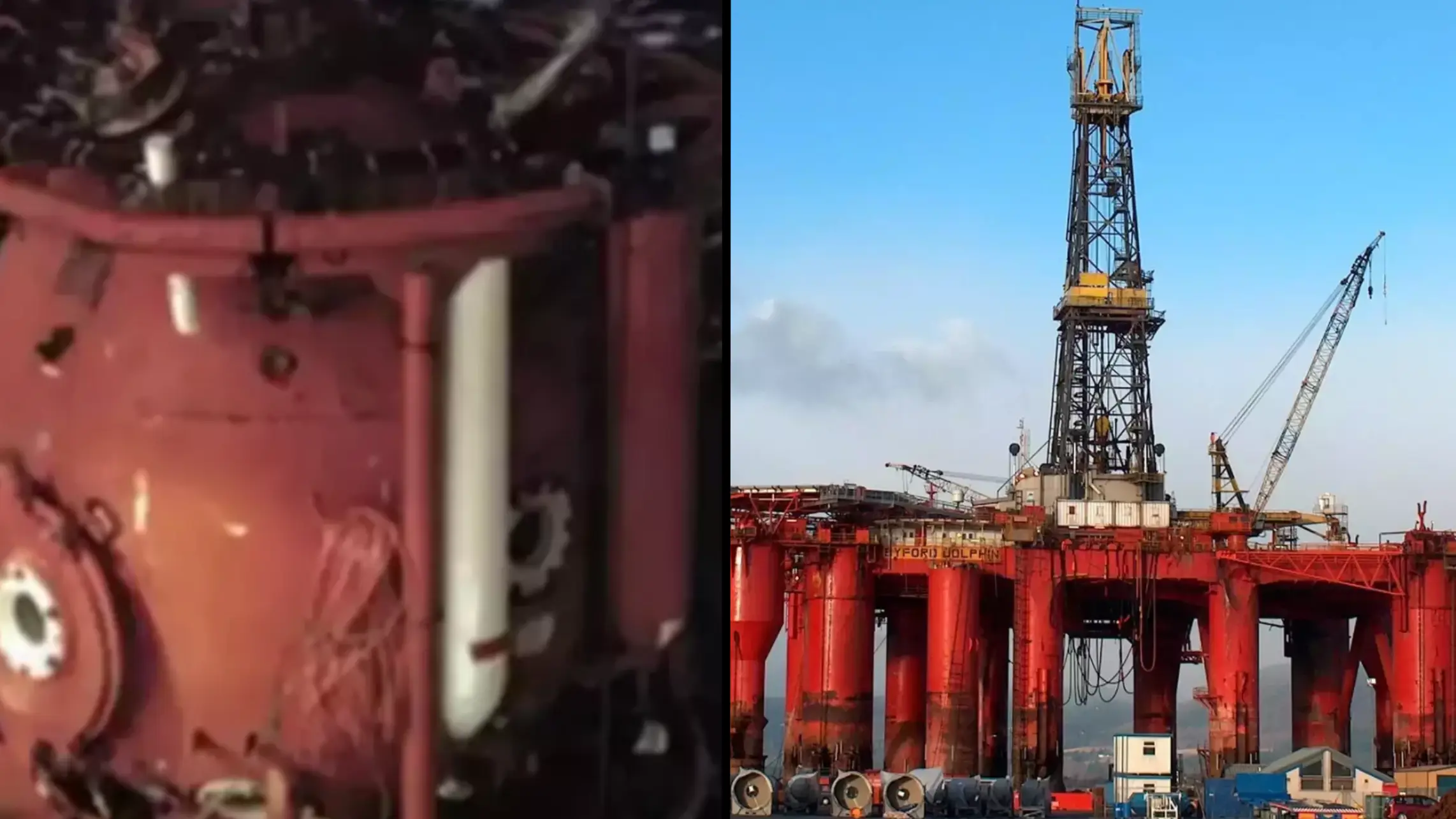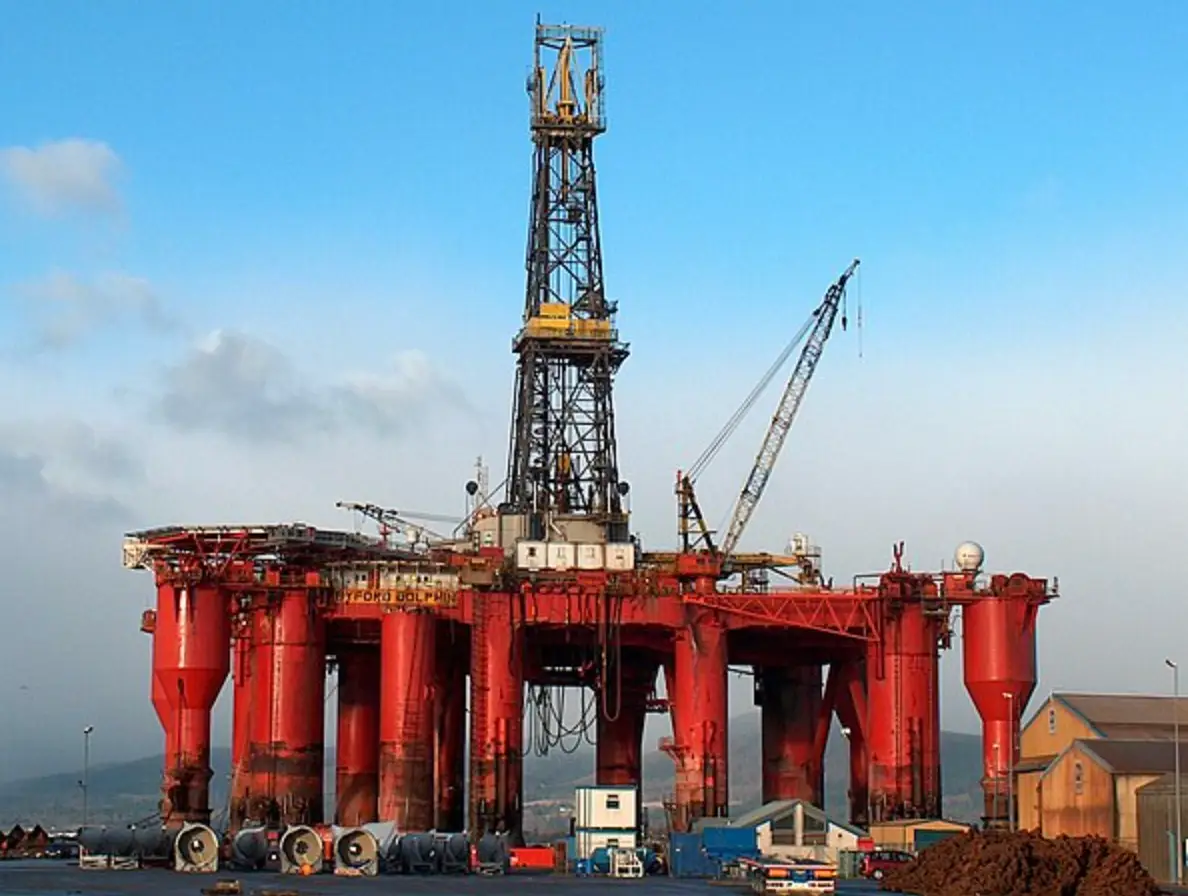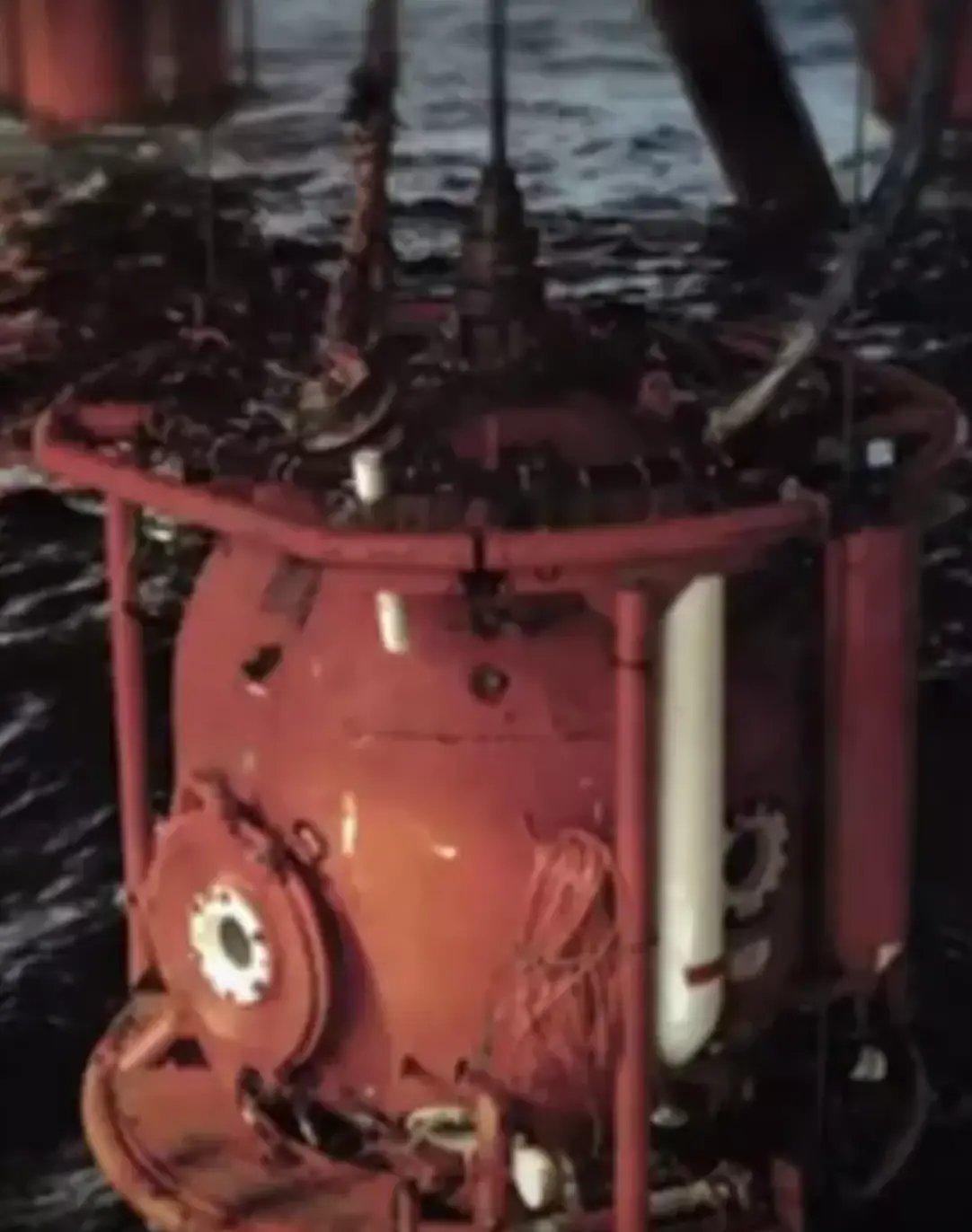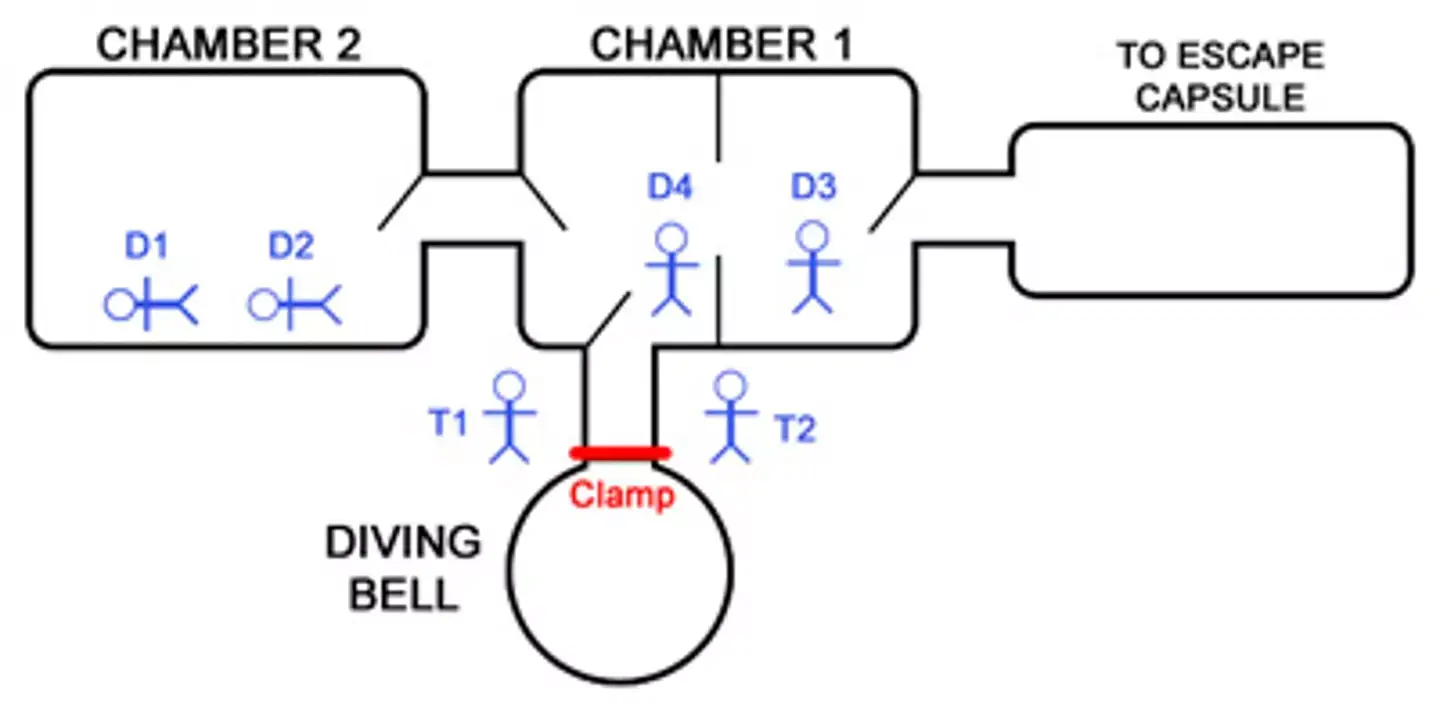
The widow of a diver from the horrifying Byford Dolphin oil rig tragedy admitted that she felt shame for 25 years before finding out the truth about the disaster.
In November 1983, a diving bell accident off the coast of Norway claimed the lives of five divers, with their families being told the tragedy occurred due to air escaping from the diving bell after the gauges were tampered with.
However, decades later, the North Sea Divers Alliance (NSDA) discovered a report that pointed towards faulty equipment as the cause of their demise.
They are truly some of the most gruesome deaths in human history.
Advert

What happened during the Byford Dolphin accident?
Working 1,000 feet (305m) below the surface, the divers were carrying out maintenance on the oil rig.
At such depths, the divers must breathe in pressurised air that dissolves the nitrogen in their blood, stopping it from bubbling up and boiling them from the inside, as diving this deep can cause these issues if they resurface too quickly.
On that fateful November day 41 years ago, the diving bell was released too soon, as air in the divers' living quarters shot from nine atmospheres to one, the normal air pressure, instantly.
Divers Edwin Coward, Roy Lucas, Bjørn Bergersen boiled from the inside while diver Truls Hellevik had his body forced through a 60cm hole due to the change in pressure, 'fragmenting' his body, as his organs flew around the pod, with his remains later found metres away.
Diving tender Martin Saunders survived but was taken to hospital, while another tender, William Crammond, was hit and killed by the dive bell.
The group of divers were blamed by officials in Norway following the explosive decompression, with many families fighting for justice for almost 30 years to win compensation.

The families' fight for justice
Ruth Crammond, husband of tender William 'Billy' Crammond, was one of those who fought officials for compensation, though along with the rest of the families, she was dismissed until the NSDA found the report detailing the faulty equipment used in 2008.
After legal action, the mother finally received a settlement a year later, as she revealed: “Billy’s death destroyed me. The fact he was blamed – and many websites still claim he made a mistake – was horrendous.
“I couldn’t speak about it. I never told our children their father was to blame. How could I? My son was only eight and idolised his father."
Ruth detailed that she 'never believed' their claims, knowing that her husband was competent enough not to make an amateur mistake on the job, citing his time in the Navy.
“He left the service to try and give a better life to his family and North Sea offered that opportunity,” she recalled.
“I used to say to him it was too dangerous, but his response always was that crossing the road was dangerous.”
'I carried that shame for 25 long years'
The Brit revealed: “I was only 33 with two young children when Billy died.
“A young police officer was sent to my door and I felt so sorry for him. I did not believe what he was telling me. But then I saw it on the news and I just lost it.
“I remember very little of those early days.”

Ruth further explained: “Then, representatives from his company arrived and told me Billy had been negligent and that’s why the men were dead.
“I carried that shame for 25 long years. It wrecked my life. I did not want to get close to people – the moment they started to ask about Billy I felt I had to move.”
Ruth said she knew he was 'never to blame', though she couldn't find any evidence to prove it, and later admitted that her compensation won't bring any of the divers back, saying it's 'too little too late'.
She added: “All I ever really wanted was an apology from the Norwegian government but I never got it and I doubt I ever will.
“In those days money was the driving force and shortcuts were made to save expense and resources. The divers didn’t necessarily know they were at risk and in many ways were the guinea pigs for the companies to see how far they could push things.”
Ruth concluded: “The various governments involved in North Sea exploration must accept responsibility.”